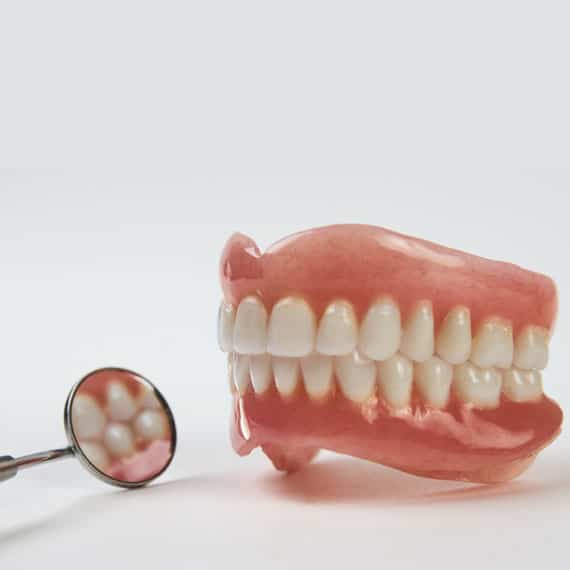
5 Considerations for Denture Relining
Dentures may get weak and become loose over time due to wear. Furthermore, mouth tissues may shrink, and the shape of the supporting bone structure may also change, causing loose dentures. Sometimes patients may experiment with adhesives and other at-home treatments to fix loose dentures. This isn’t recommended. The appropriate way to deal with loose dentures in Bellevue is to have them relined at our dental clinic.
At Bellevue Azalea Dentistry, patients with loose dentures may receive denture relining for a better fit and increased confidence. Dentures are helpful only when they are correctly fitted. This article will go over the various types of denture relining. It will also highlight 5 factors to consider when deciding on denture relining.
Types of Denture Relining
Dentures are artificial teeth that can fit in your mouth to replace missing or broken teeth. They maintain the function of your mouth as well as the appearance of your face. Eating and speaking may become more accessible with dentures and smiling and laughing confidently. However, dentures can become loose over time. Denture relining is a procedure that adjusts your dentures to fit your mouth as your jaw bone and gum tissue change naturally. Your dentist may reline your denture base so that it fits comfortably against your gums. There are three types of denture relining available:
Soft relining: If you have delicate gum tissue, your dentures may trigger mouth sores. Soft denture relining may help with this condition. A soft reline is formed with a moldable material, such as wax or rubber (rather than acrylic). It can remain soft for a year or so while cushioning sore spots in your mouth. If consistent soft relining is required, the denture may be redone. The soft reline can last for more than two years.
Hard relining: A hard reline is a more durable option. The material is typically created in a laboratory and takes longer to produce than a soft reline. The material is generally acrylic, which is comparable to the denture base. It also allows the denture to fit seamlessly around the contours of the gums. Hard relines typically last at least two years. However, they may last much longer with proper care.
Temporary relining: You may require a temporary relining when you haven’t serviced your dentures for an extended period. You may even have intense gum sores. Your dentist may need to reline your dentures with a medicated material to alleviate gum irritation. Relining can be finalized once the wound has healed. If a temporary reline fails, you may require a new denture.
5 things to consider when making your choice
1- Why are relines needed?
When your dentures split, fracture, chip, or feel loose, you may need to have them relined. Also, if you usually experience sore spots with your dentures, you may consult a dentist about relining.
2- Does the denture have to go to the lab to be relined?
To make a hard reline, the dentist will typically send an impression of your gum to the lab. There, a permanent liner will be created. Your dentist may need the denture to fit the reline once formed. This procedure could take a day or two.
3- Can the dentist reline a denture in the office?
Yes. The soft or temporary denture can be performed in the dentist’s office. One advantage of in-office relining is that the patient may not need to wait for the dentures to return from the lab. On the other hand, soft relines require regular relining due to the material used.
4- Can a patient reline the denture?
Yes. But it isn’t advisable to reline dentures at home. While DIY denture relines kits are available, the results are frequently uncomfortable and only temporary. It is recommended to leave the procedure to your dentist. To reline the dentures with either a hard or soft material, your dentist will need to take an impression of your mouth. If you require a temporary reline, your dentist will use a medicated material.
5- Can only a portion of the denture be relined?
Yes. The complete denture doesn’t need to be relined when only a faulty part. A dentist may determine the root of the issue and treat only that part of the denture.
Frequently Asked Questions
How Often Should Dentures Be Relined?
While it will vary depending on the circumstances, a helpful tip is to have your dentures relined at least every one to two years. Regular inspections are essential for determining when your denture set requires relining. We recommend you take good care of your dentures to make them last longer. You may also brush them just like you would your natural teeth. Dentures usually keep their shape for longer when you soak them in warm water before bed. The better you look after them, the longer they may last.
When Should I Replace My Dentures Instead Of Relining Them?
If your dentures get damaged beyond repair or the structure of your mouth changes considerably, you may need to replace your dentures completely. You may also decide to replace them if they are excessively worn out. It is critical to replace worn-out dentures quickly before they trigger dental problems.
Conclusion
Denture patients may frequently require a relining procedure when their dentures no longer fit properly in the mouth. Denture relining may increase the life of the prosthetics while also making them more comfortable. A denture reline is usually a quick procedure. If you require a soft reline, it can be completed in a matter of minutes at your dentist’s office. On the other hand, your dentist may send your dentures and impressions to a lab for a hard reline. This could take up to two days. If you require a temporary relining, the procedure may take several weeks. During the healing process, you need to wear temporary medicated dentures. After it has completely healed, you’ll need to go back to your dentist for another reline.

